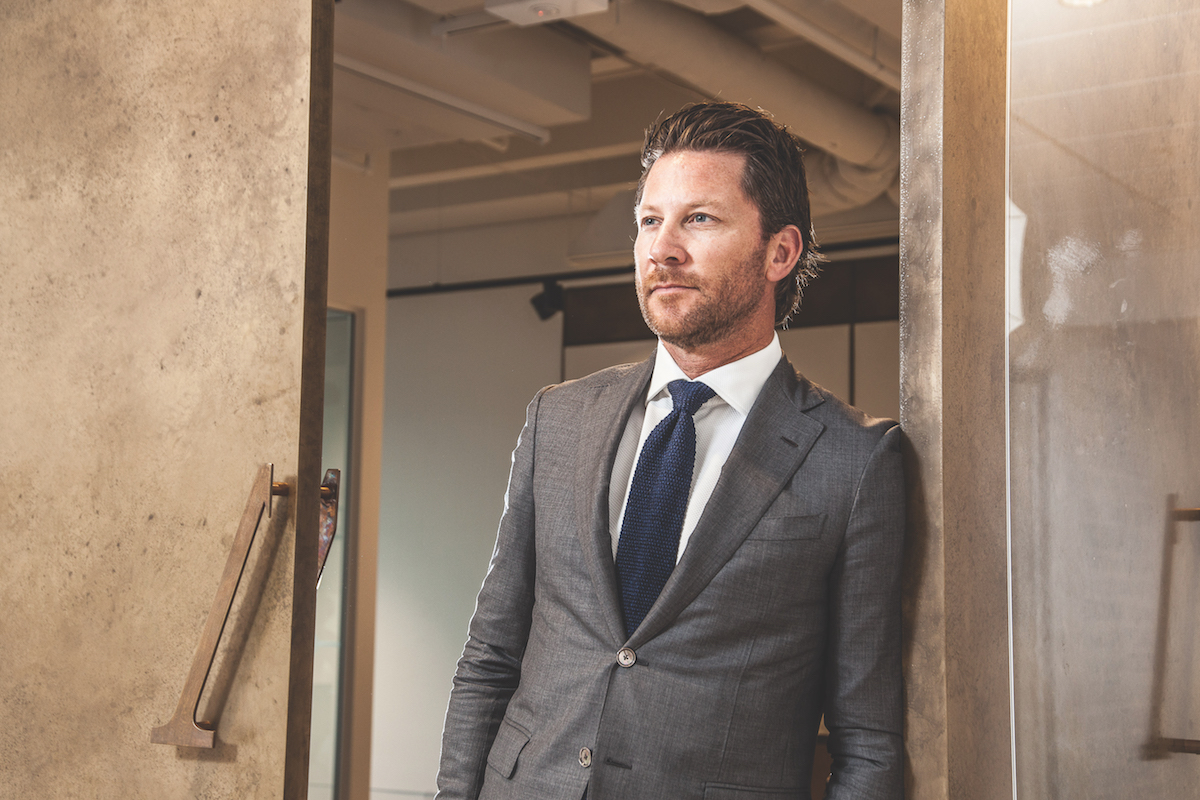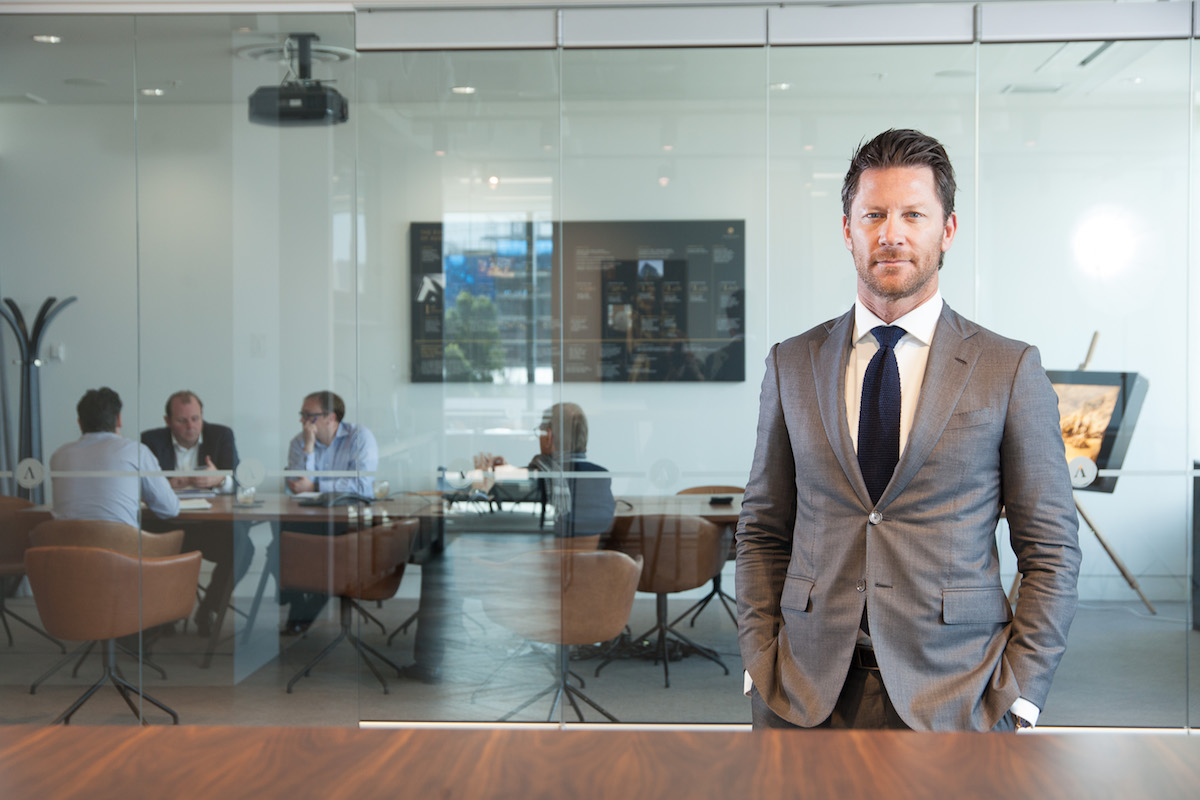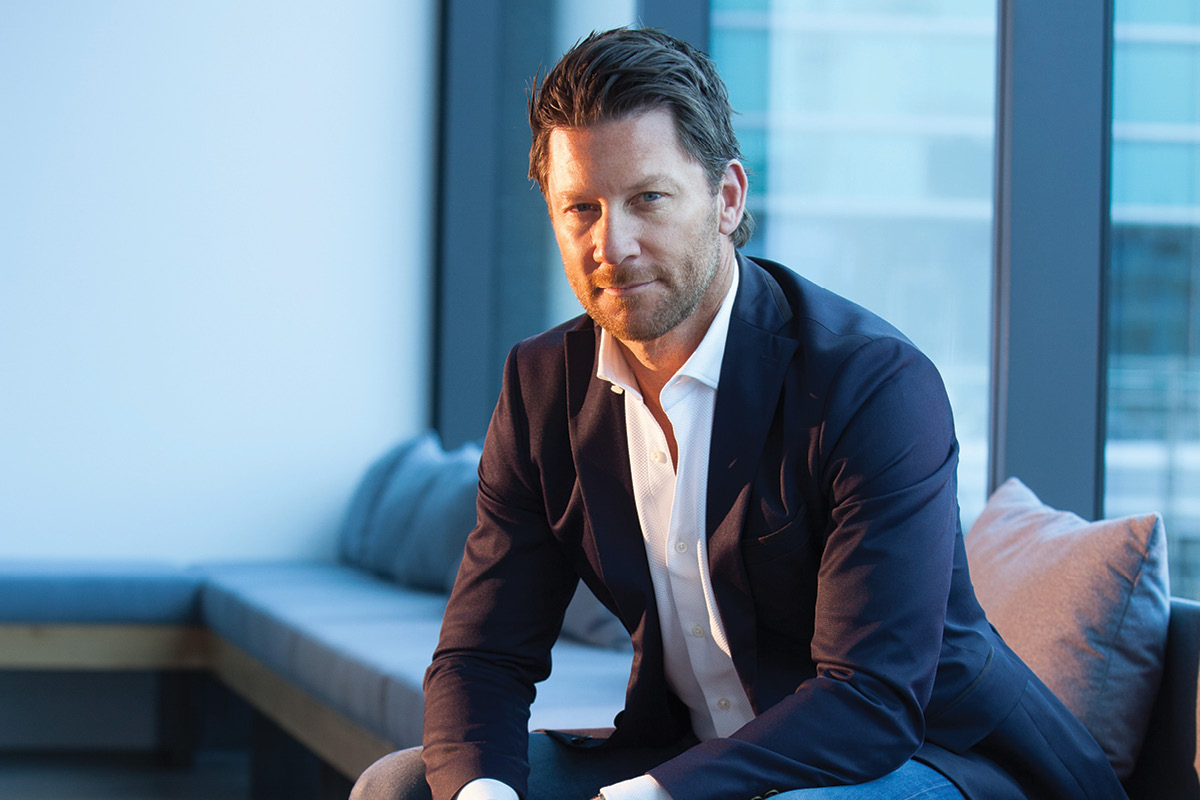It would normally be crass to suggest that a son of a millionaire investor would know in any way what it’s like to be a true underdog.
But underdog status is not determined by a person’s background or upbringing. It is determined by their ability to win battles despite all odds being stacked against them. In that case, Augusta Capital Managing Director Mark Francis fits the bill.
When the New Zealander, son of Auckland property investor Peter Francis, founded Augusta in 2001, it was with only himself and an office assistant on board. “The two of us set up shop from my home office,” he recalls.
Property is in Mark Francis’s DNA
Having spent his entire career in property, Mark says he loves it and it’s “in his DNA”. He likes its tangible nature; that he can create it, look at it and touch it. “To see things get built is really satisfying. To me, it’s very relatable. Real estate can’t disappear,” he says.
Initially, Augusta was built around what Mark describes as “trading small industrial-type assets, buying shitty old sheds, giving them a coat of paint, planting a pretty tree out in the front, and trying to flip them on for a margin.”
But he was left feeling unfulfilled. He disliked the real estate developer life of being “only as good as your last deal”. Wanting more bang for his buck, in 2003 Mark began transitioning Augusta from commercial property management to the world of property syndication.

“I just wanted to create a business that would still be around in 20 years, and could grow and deliver recurring earnings,” says Mark. “I was more interested in building a long-term sustainable business so I didn’t always have to be looking for another deal to survive.”
In his twenties, with no experience raising public money and no established brand or reputation to draw from, Mark turned to the Bayley family, of the Bayleys Real Estate empire, for assistance, running ads in the local newspapers with their brand name attached to raise the required capital.
“I had some longstanding connections with the Bayley family. It was a multi-generational friendship there,” notes Mark. “We co-branded and contracted a property in Hamilton, which is about an hour south of Auckland. It was a NZ$3.5-million asset, which seemed huge at the time.”
Mark fought “through blood, sweat and tears” to raise the NZ$1.85 million capital needed to complete the transition to property syndication. To this day, he remembers it as the hardest capital he’s ever raised. “We got it home, just,” Mark recalls. “From there, away we went. These days, we’re raising NZ$100 million at a time.”
Augusta thrives on team unity
Now with 40-odd staff in Augusta’s ranks, Mark says maintaining a connection with all of them is critical. He has also strategically armed himself with a team that is incredibly smart and people oriented. It is important to Mark that even during a significant growth period, he’s able to maintain a well-connected group who are fully (and passionately) behind him on this journey.
It all comes down to running a flat and open hierarchical structure, Mark says. One morning each week, Augusta holds a team meeting where everyone from the Auckland and New Plymouth offices is informed about what the company is up to at the top level.
“That’s every staff member from both offices all around our boardroom table; everyone from the receptionist to myself. It goes for an hour or so,” explains Mark.
“I’m a big believer in everybody rowing in the same direction. To do that, they’ve got to know in which direction we’re rowing. Unless there’s something else that supersedes it for commercial or legal reasons, there are no secrets. It’s a real open sharing of ideas.”
I’m a big believer in everybody rowing in the same direction
That team unity certainly became paramount for Augusta in April last year. Real estate investor National Property Trust (NPT) was proposing to buy two buildings from Kiwi Property Group for NZ$230 million as well as give it management rights for its entire portfolio.
As NPT’s largest shareholder, Augusta opposed the proposal and wanted to spill the board. Augusta was ultimately successful in an NPT shareholder meeting, replacing most of the Kiwi Property Group-appointed executive directors with its own.
“We’re not afraid to take on big opportunities”
Mark refers to the episode as “a real David and Goliath battle” that encapsulates the Augusta story in a nutshell. “It was us, the little guy, taking on Kiwi Property Trust, which is the biggest listed property trust here,” he says.
“Most of the market wrote us off once Kiwi got involved. It was almost like, ‘Nice try little kid; you know you gave it your best shot, but big brother’s moved in now and it’s game over.’ That only steeled our resolve, further, and made me keener to win that important battle.”
The NPT process also provided an opportunity for Augusta to display what Mark believes are some of its trademark qualities: a little bit of irreverence and cheekiness, but also fearlessness and a willingness to have a go. “We’re not afraid to take on big opportunities. We like to bite off more than we can chew,” Mark says.

We’re not afraid to take on big opportunities. We like to bite off more than we can chew.
“I think it’s very doable. We’ve got great support from all these institutions, the shareholders, and the parent company in Augusta which is listed on the New Zealand stock exchange [NZX] in its own right. They’re very supportive of where we’re heading with these new fund initiatives.”
Grand plans for new directions
With a history of dealing with single asset funds and syndicates raised by, in Mark’s words, “mum-and-dad investors with NZ$50,000 each”, Mark has grand plans to move Augusta in new directions. Closing in on the NZ$2-billion mark in funds under management (FUM), he hopes in a couple of years to reach NZ$3 billion FUM, and then NZ$5 billion a couple of years after that.
“In terms of where we’re going, to hit the growth targets we have in mind, it is crucial we have different areas of focus. This includes broadening our range of offerings, actively looking for platform opportunities or partnerships in Australia, and also targeting different investor bases such as more wholesale, high net-worth and institutional investors,” Mark explains.
“I don’t have the patience to still be trying to hit those targets in a decade’s time. Part of our nature, too, is wanting to get on with things and achieving it now. We’ve set some aggressive targets, but so far we’ve managed to hit them and we’ll certainly keep trying to.”
A broader investment criteria
Mark also understands that if Augusta needs to offer a lot more than it is currently, and across different sectors, he must broaden the company’s investment criteria beyond yield unlike it has done in the past.
“There’s more of a total return story to a lot of what we’re doing and with more of a geographic spread,” he says. “Queenstown and Auckland is where all the action and growth is in New Zealand, so those are two spots that we’re looking at very closely, both for tourism and residential.”
Even as Augusta reaches FUM in the billions, Mark will continue playing David – because, from day one, it has been about enabling investors to have access to more than just the rental house down the road.
It is about giving them access to big institutional commercial real estate that would otherwise have been out of their reach. It is about empowering the underdog. That is what Augusta Capital, the true underdog story, is all about.



